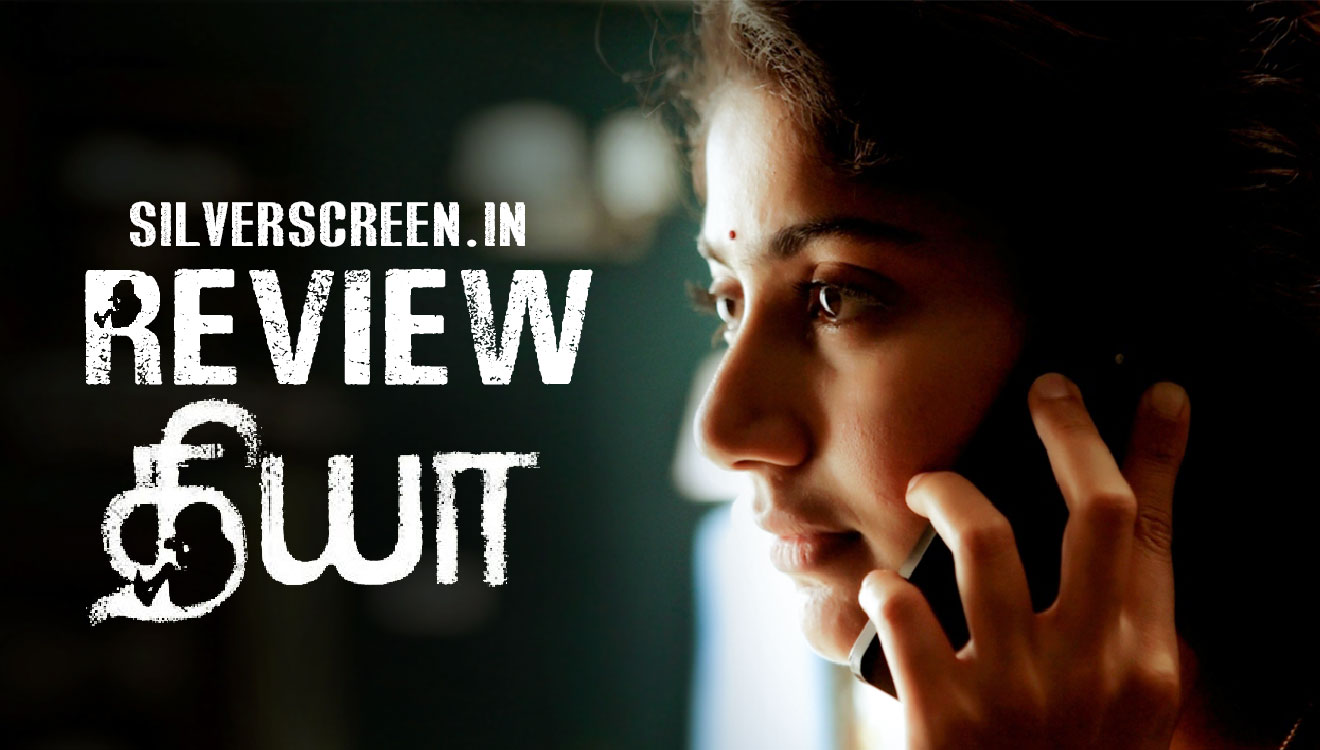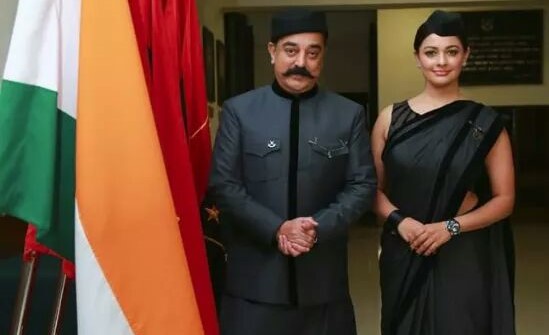Mahanati, director Nag Ashwin’s biopic of the late actor Savitri, unfolds through the eyes of Madhuravani, a struggling journalist waiting for her first big break. Savitri is in a coma, and a reluctant Madhuravani is asked to write a fluff piece, a story to fill the pages.
But like the little boy in Princess Bride, Madhuravani slowly gets drawn into her subject, drawing the audience in with her. The people in Madhuravani’s orbit – her editor and the several people from Savitri’s life that she meets for her story – are both narrators and cheerleaders; they play the role of the hero’s sidekick, building Savitri up as a gifted actor and an adventurous superstar who never forgot her roots.
It would have been a brilliant effective device, except Ashwin adds a farcical backstory to Madhuravani, complete with a needless romantic track with her photographer and her growth from a stuttering journalist unsure of her place to a confident young woman. Samantha Akkineni plays Madhuravani, in a performance typical of her films of late. She takes pains to look the part, but her ability to emote seems to have largely deserted her.
Shot beautifully on film, the movie jumps between the present and the past, with cinematographer Dani Sanchez-Lopez using different palettes and grains to differentiate between the time periods. Mahanati is enhanced by detailed production design with art director Avinash working meticulously to recreate Madras from the eighties, from the trams on Mount Road to the various movie studios that no longer exist. The effect is magnetic, a stylized recreation of a city that draws the viewer in.
*****
Keerthy Suresh excels as Savitri, putting in a nuanced performance in a difficult role. She emotes brilliantly, the twinkle in her eye giving way to melancholy as Savitri ages. The actress continues from where she left off in Thodari, cementing her reputation as one of the better female performers in the South.
When her uncle decides to bring her to Madras to audition for roles in cinema, Savitri is just 14, a playful teenager with a stubborn streak, an accomplished dancer and a mini-celebrity in her small village. They soon realize that getting into movies was not as easy as they thought it would be.
And then, they run into Ramasamy Ganesan, a suave photographer who does casting for Gemini studios. ‘Gemini’ Ganesan, played by Dulquer Salmaan, is instantly attracted to Savitri, and tells her just what she wants to hear; that she’ll be a big star one day.
Savitri was 16 when she married Ganesan in a secret ceremony; he was 32. He was already married to Alamelu, and was in a long-term relationship with another woman, Pushpavalli.
Ashwin portrays the initial parts of the relationship like a quaint love story between a stubborn young woman and a young man claiming to be in a loveless marriage. The portrayal glosses over the predatory nature of the relationship, a much older man preying on a girl half his age; a man in a position of authority preying on someone wanting to break in; a man who was taking advantage of a girl looking for a shoulder to lean on in an unfamiliar city.
And by casting Dulquer Salmaan, Ashwin sanitizes the relationship even further for the audience, almost like it was just another hero and heroine cavorting around. One wishes he had been bolder when casting, having someone much older than Keerthy Suresh play Gemini Ganesan, exaggerating the impact of their difference in age and stature.
There is also a remarkable lack of any passion in the relationship – perhaps a deliberate choice – and the effect overall is that of a girl and a boy who talk more about love than they actually love. A Kamal Haasan or an Aravind Swamy chasing Keerthy Suresh around trees would have been a more appropriate motif for this relationship. In a telling scene early in the relationship, Savitri looks longingly at little girls playing with their dads in a carnival and muses if her long-dead dad would have given her piggy back rides too had he been alive. Gemini Ganesan then carries her on his back, filling in for her dad.
*****
Savitri, by all accounts was a complex woman, a trail blazing actress with a fondness for fast cars and jewelry, a sensitive soul who cared not just for her friends and family, a young woman who fell for a twice married man and an alcoholic who spent the last few years of her life neglecting herself and her children.
Writing realistic female characters has long been a struggle for writers in Indian cinema, and surprisingly, the trend continues in Mahanati, even when writing someone like Savitri. The exuberance of Savitri’s youth is portrayed using several bubbly heroine tropes that would not be out of place in a mainstream masala; it takes Keerthy Suresh to rescue the writing and lend some dignity to the character.
Savitri’s success coincides with the deterioration of her marriage, and Ashwin expertly juxtaposes the happiness of her professional success with a failing personal life. The performers shine in this segment, both Keerthy Suresh and Dulquer Salmaan. He descends into outright jealousy, she into a mix of joy and sorrow, concern for her husband overshadowing her happiness at work.
*****
Mahanati shines where it recreates well known scenes from Savitri’s life, especially her movies. The detailing is exquisite, and the camera work (especially the choice to shoot on film) helps lend the recreated scenes authenticity. An ensemble cast (Naga Chaitanya playing his granddad Nageswara Rao, Mohan Babu as SV Ranga Rao, Prakash Raj as Chakrapani) helps, although that is marred by a ghastly computer-generated NT Rama Rao.
Like most biopics, Ashwin’s big struggle must have been to decide what portions of Savitri’s life to leave out. The movie clocks in at more than 2 1/2 hours, and Savitri had the Madhuravani track sharing screen space with her. Ashwin and editor Kotagiri Venkateswara Rao seem to have decided to solve this problem by speeding up proceedings, almost every scene feels rushed, leaving viewers breathless.
Recommended
When Savitri and her uncle enter a studio, they see a temple at the entrance. And while they close their eyes to pray, the temple set gets dismantled. A similar scene played to laughs in Kamal Haasan’s Avvai Shamnugi, but before you can begin to smile, Mahanati has moved on to the next scene and the next. A lot of events from her life get cursory treatment, Patel shots of her generosity to the Indian Army, a short scene about her fondness for fast cars.
Mahanati sticks to publicly known information and stylizes incidents from Savitri’s real life, almost making her life look like a movie, as if she lived her entire life only for the screen.
It takes cinema to reduce a lush, textured, complex life to… cinema. And perhaps that is what Savitri would have wanted.
PS: Rekhs, the subtitlist continues to be reliably funny. She will not use the same subtitle twice when a phrase is repeated, and in this movie there is repeated use of the word Mahanati (”Great Actor”). Much hilarity ensues. I wish I had written down the subtitles, but phrases like “Magnificent Thespian” and “Fantastic Funambulist” would not be out of place.
*****



